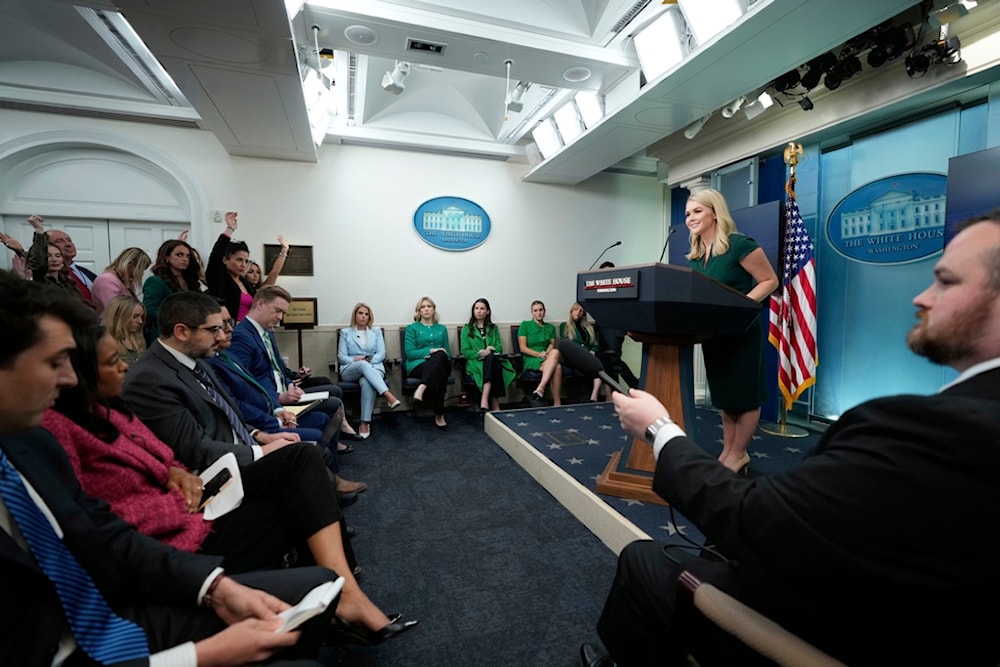White House declines to confirm US exit from war crimes inquiry
US President Trump is expected to discuss ceasefire terms with Russian President Vladimir Putin, including possible territorial negotiations and energy infrastructure arrangements.
-

White House press secretary Karoline Leavitt speaks during the daily briefing at the White House in Washington, Monday, March 17, 2025 (AP Photo/Ben Curtis)
The White House has refrained from confirming reports that the United States is pulling out of a European investigative body focused on alleged Russian crimes in Ukraine. Press Secretary Karoline Leavitt addressed the matter during a briefing on Monday, stating, "I'm not able to confirm it because I have not heard that."
According to The New York Times, the Trump administration has informed European officials that the US will no longer participate in the International Center for the Prosecution of the Crime of Aggression against Ukraine (ICPA). This center, which the Biden administration joined in 2023, is based in The Hague and collaborates with Eurojust to support investigations into the war in Ukraine. The US had been the only non-European country in the coalition before this withdrawal.
This move signals a shift in US policy as the Trump administration seeks to reestablish diplomatic ties with Moscow while working toward a potential peace agreement in Ukraine. The withdrawal also accompanies a reduction in the operations of the US Justice Department's War Crimes Accountability Team. This group, established in 2022, has played a crucial role in assisting Ukrainian prosecutors with evidence collection and legal proceedings related to war crimes. The team has provided logistical support, training, and resources for Ukrainian authorities pursuing cases against Russian military personnel.
In addition to these changes, President Trump is expected to discuss ceasefire terms with Russian President Vladimir Putin, including possible territorial negotiations and energy infrastructure arrangements. Reports suggest that the talks may involve the division of assets such as power plants, with speculation that the Zaporozhye nuclear plant could be part of the discussions. The White House has yet to provide further details on these upcoming negotiations.
White House Press Secretary Karoline Leavitt confirmed that the division of Ukrainian territory and assets has been discussed between the US administration and Ukrainian officials ahead of Trump's scheduled call with Putin, though she declined to elaborate on specifics.
Read more: EU capitals argue over more military aid to Ukraine: FT
The decision to scale back US involvement in war crimes investigations has drawn concern from European allies and human rights organizations, who worry about its implications for accountability and justice in the ongoing conflict. French President Emmanuel Macron has stressed the need for strong security guarantees for Ukraine, warning against policies that might embolden Russian aggression. Meanwhile, European Union foreign policy chief Kaja Kallas has expressed skepticism about the US approach, arguing that diplomatic engagement with Moscow must be backed by firm conditions.
Western analysts argue that the move weakens efforts to hold Russian leadership accountable, particularly as international bodies, such as the International Criminal Court, continue to investigate alleged war crimes in Ukraine. Some Republican figures have also noted a growing shift within their party, with certain factions adopting a more conciliatory stance toward Russia, marking a significant departure from the party’s historically hardline position on Moscow.

 3 Min Read
3 Min Read









